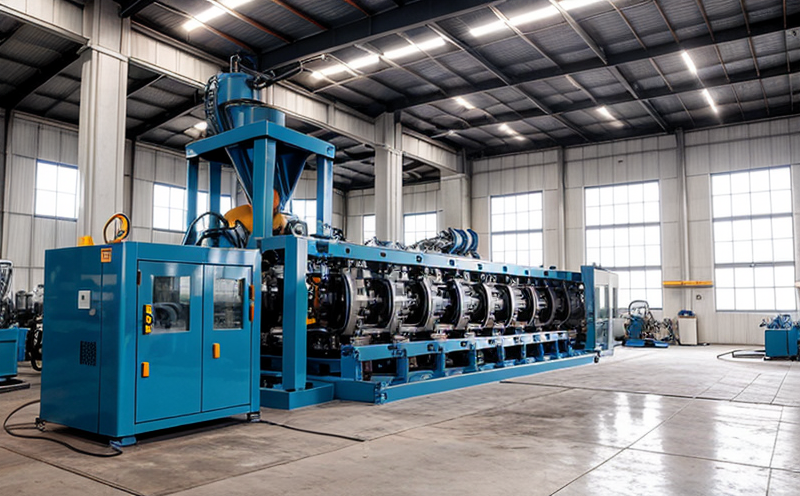ISO 3046 Reciprocating Internal Combustion Engine Performance Testing
The ISO 3046 standard is an essential tool for ensuring that reciprocating internal combustion engines meet the highest performance standards. This testing method assesses the efficiency, durability, and compliance of these engines with industry benchmarks.
For industrial manufacturing and processing sectors, where machinery and equipment are critical to production processes, this test ensures reliability and longevity of engine components. By adhering to ISO 3046, manufacturers can demonstrate that their products meet international standards, enhancing trust among buyers and regulators.
Engineers involved in the design and development phases benefit greatly from this testing as it allows them to refine product performance before mass production begins. This is especially important for sectors where engine failure could result in significant downtime or safety risks.
The test involves subjecting the engine to a series of controlled conditions that simulate real-world operating scenarios. Specimen preparation includes ensuring the engine is at optimal temperature and pressure, which are crucial factors influencing performance metrics.
Instrumentation used during testing typically includes data acquisition systems capable of recording multiple parameters such as power output, fuel consumption rates, exhaust emissions, and more. These measurements provide comprehensive insights into how well an engine performs under various conditions.
Scope and Methodology
| Parameters Tested | Description |
|---|---|
| Power Output | Determines the amount of mechanical work done by an engine over a given time period. |
| Fuel Consumption Rate | Measures how much fuel is consumed per unit distance or volume processed. |
| Exhaust Emissions | Evaluates pollutants released into the atmosphere during combustion processes. |
| Operating Temperature and Pressure | Ensures engines operate within safe limits to prevent damage. |
| Test Conditions | Description |
|---|---|
| Load Factor Variations | Tests the engine's performance at different loads, from idle to full throttle. |
| Environmental Factors | Considers temperature, humidity levels that influence engine efficiency and durability. |
| Operational Cycles | Simulates typical operational cycles experienced in industrial settings. |
Quality and Reliability Assurance
The results from ISO 3046 tests play a crucial role in quality control processes by providing objective data on engine performance. This helps identify areas needing improvement early in the production cycle, thereby reducing costly rework or recalls later.
Reliability is enhanced through consistent application of testing protocols, which ensure that every batch of engines produced meets the same stringent standards. This consistency builds confidence among clients and fosters long-term relationships based on mutual trust and satisfaction.
Customer Impact and Satisfaction
- Better Product Reputation: Compliance with ISO 3046 enhances the reputation of both individual products and companies as leaders in their field.
- Increased Market Share: By offering superior quality, manufacturers can attract more customers seeking reliable solutions.
- Sustained Customer Loyalty: Consistent performance across all units sold fosters loyalty among existing customers who experience consistent quality.





